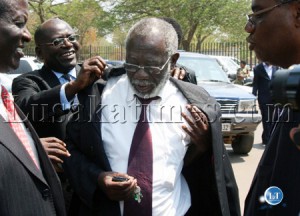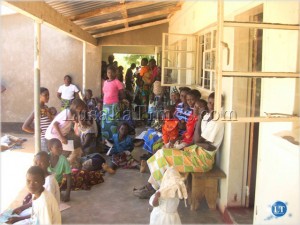
By Gray Soko
It is said that when the mathematician and meteorologist Edward Lorenz presented his theory of the Butterfly Effect he was literally laughed out of the room. The theory of the Butterfly Effect suggested that the flapping of the butterfly’s wings may create tiny changes in the atmosphere that may ultimately cause a chain of events leading to large scale alteration of events such as the path of a tornado or delay, accelerate or even prevent the occurrence of a tornado in another location. His theory has now been accepted as valid in mathematical and meteorological applications. It is all about starting with small steps.
In the First Republic KK was literally laughed out of the platform for his “back to the land” and “fuel from grass” ( bio-fuel ) proposals, Sondashi, accredited with no mean insights in local government and constitutional law, was also laughed out of the podium for suggesting a federal system of government to stimulate development in rural areas. The now much discredited NCC even went the opposite direction with proposals for a much larger national assembly. General Miyanda fared no better with his village concept which was laughed at as backward, unscientific and naïve. Interestingly the same village concept is being tried elsewhere in Africa ( Uganda, Rwanda and Kenya for example ) as a means of achieving sustainable improvement in living conditions in rural communities.
In three years’ time Zambia will have cloaked 50 years, half a century of nationhood. The centralized system of government we have had since independence has obviously failed to effectively address the socio-economic problems of the rural areas which still record unacceptably high levels of poverty. Decentralisation has been accepted in principle but over decades nothing tangible has happened. Cabinet ministers from Lusaka still travel to the remote areas of the country to “inspect development projects” when there is on paper a provincial and district administration. The role of the provincial minister and the handful of district commissioners seems to be only that of a welcoming party.
Decentralisation of government may just bring about the butterfly effect in the development of rural Zambia. The initial effects may be small but will initiate a chain of events that will lead to large scale change in the economy. An elected provincial council chaired by a full cabinet minister with chiefs in attendance must be the initiator of development, effectively supervising them and exercising full accountability for the resources from central government. If chiefs have to be relevant, they should have a role beyond traditional ceremonies and the House of Chiefs, which constitutionally is only advisory on matters of tradition and culture. They should play a developmental role in provincial councils. Such an arrangement will provide incentives and jobs for skilled persons and those with political ambitions to start making a useful contribution to the overall development of the country.
More research of course needs to be done to refine ideas we have previously laughed at as untenable ( back to the land, bio-fuel, federal system, village concept etc ) or shelved so that whatever is implemented does not have negative or perverse unintended consequences in our match forward. To borrow Obama’s words on the passing on of the Apple boss Steve Jobs, I feel President Sata “ is brave enough to think differently, bold enough to believe he (can) change ( Zambia ) and talented enough to do it”. Let’s hope the team that will be tasked to look at the constitution will not overlook the urgent need for effective decentralization.












